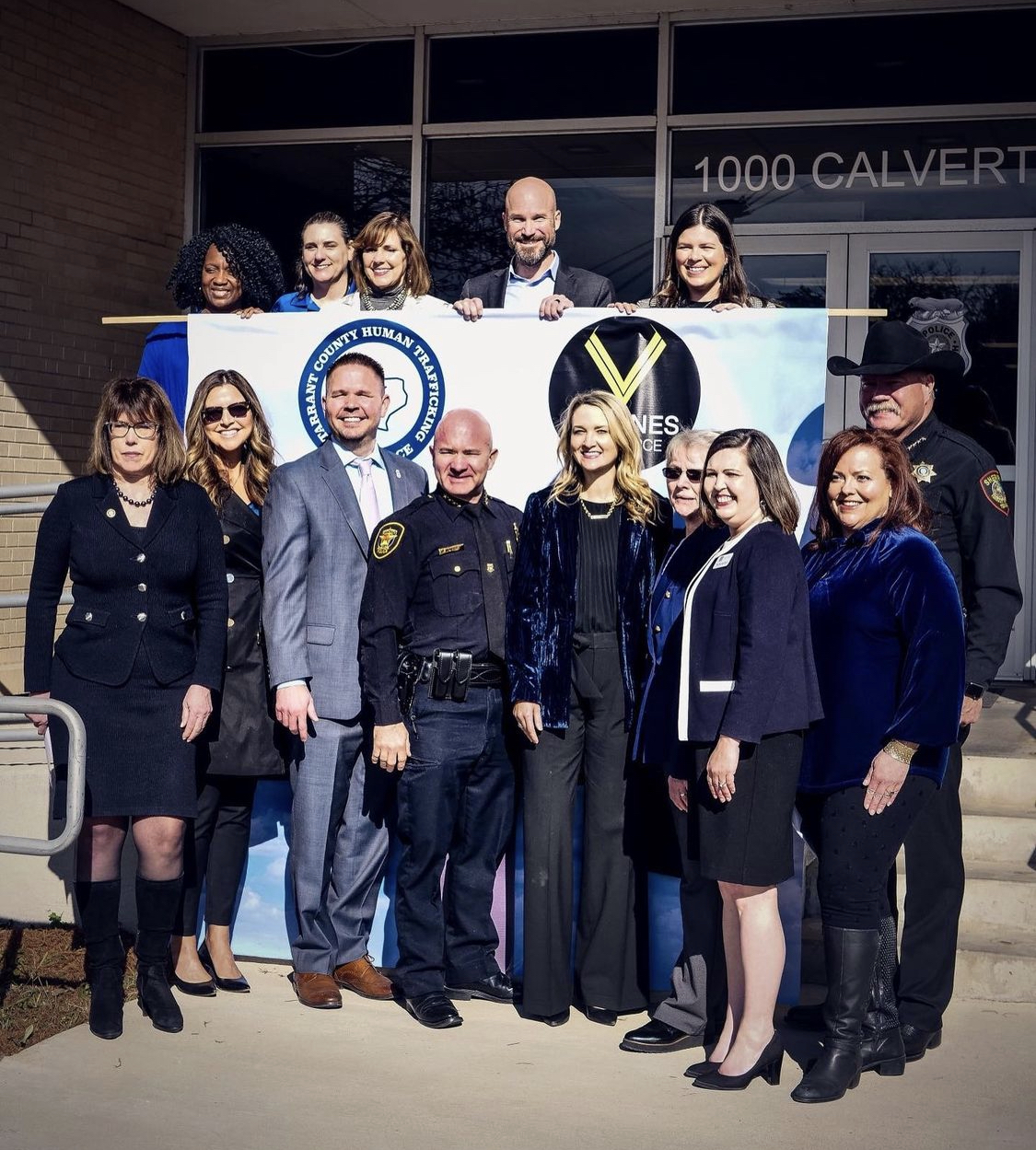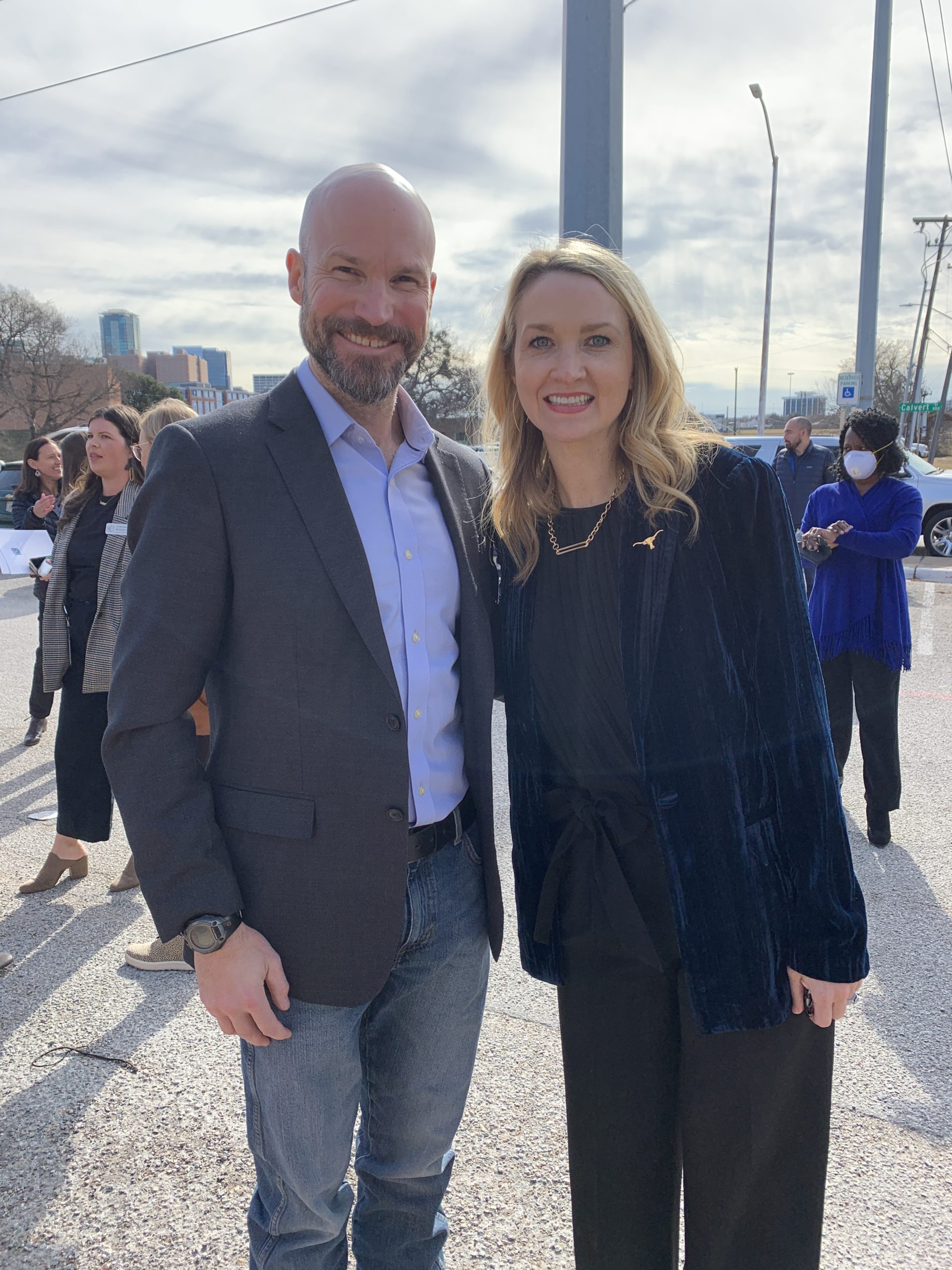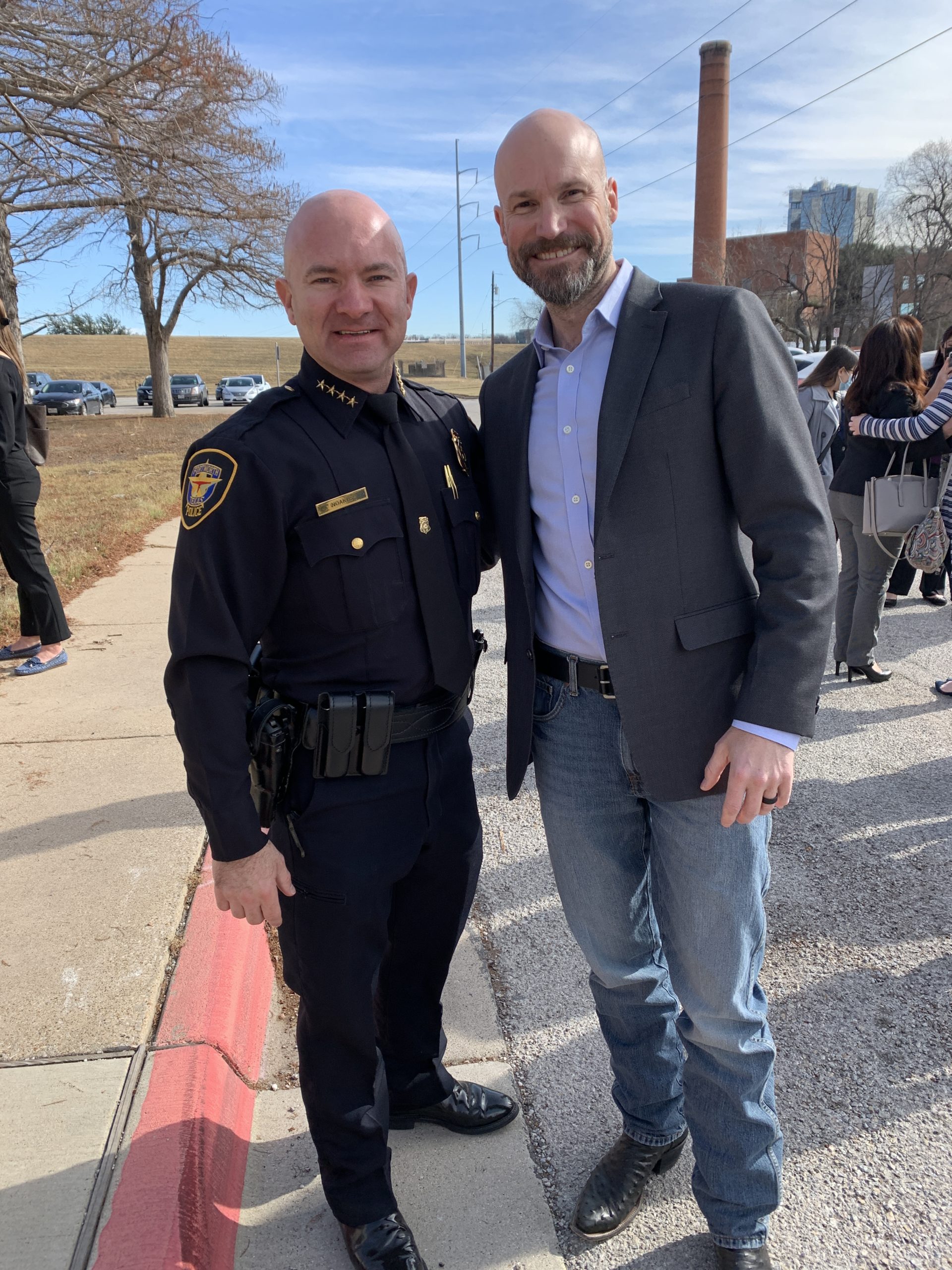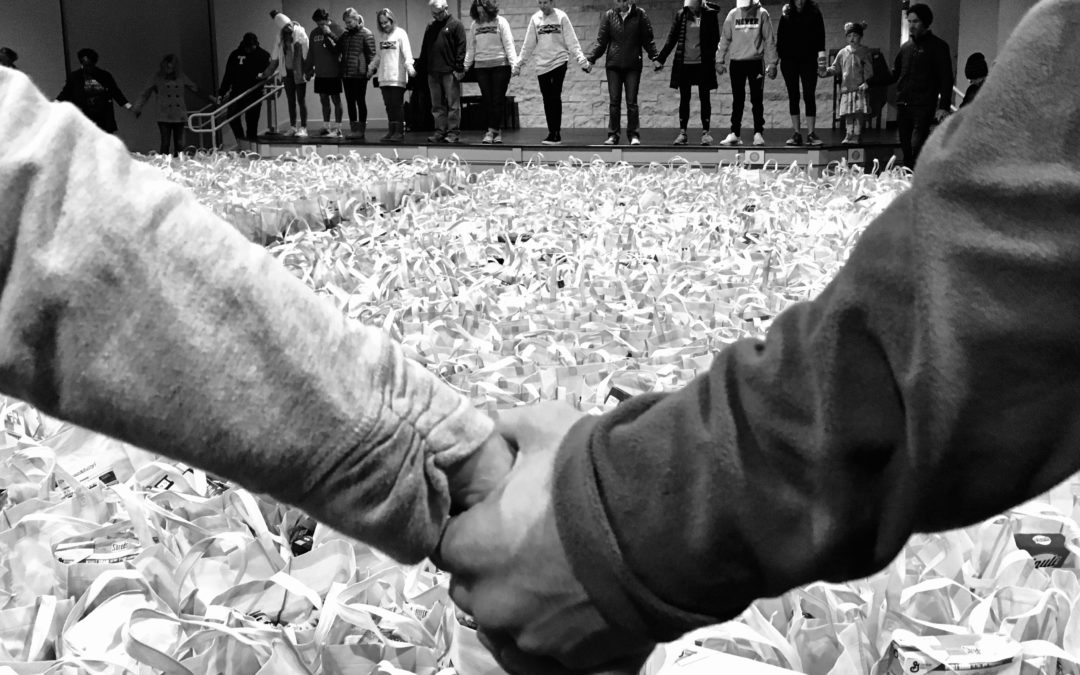
by Lance Cashion | Jul 8, 2020 | Jesus Christ, Leadership, Personal Growth, Relationships, Serving, Worldview |
Over the last twelve months, I have undergone the rigors of the Colson Fellows Program Residency. The mission of this master’s level course equips Christians with a robust Christian worldview so they can thoughtfully engage with post-Christian culture, inspire reflection in others, and work effectively toward re-shaping the world in the light of God’s kingdom.
I have been developing a bigger vision for my life’s work and calling.
I’m bringing this vision to bear in my role as a Local Missions pastor at Christ Chapel Bible Church. My role is to help our church engage in service in our communities. My broader mission is to help my brothers and sisters develop a “distinctly Christian vision for life, culture, relationships and service.” In today’s post, I’m going to focus on service and what that means.
As I have reimagined and prayed about a ‘bigger vision’, I have realized my goal is not just to get people to serve but to understand the “Gospel of the Kingdom” – a truly Kingdom vision. Serving is just one expression of this comprehensive view of reality. Jesus spoke of the “Gospel of the Kingdom.” We need to ask, ‘What does He mean by ‘Kingdom?’ (Luke 4:43, Luke 8:1, Luke 10:9, John 18:36). I’ve found that the Kingdom sometimes gets lost in the noise of everyday life and even ministry.
When Jesus redeems and saves, He invites us to join him in the Kingdom work of redeeming and restoring the world and culture (all things) – albeit imperfectly. We are ministers of reconciliation between God and man through the Gospel. My good friend and Pastor Doug Cecil likes to say, “The Gospel is enshrined in our hearts and proclaimed with our lips.” I would also add that the Gospel is also seen in our lives and felt through our hands and feet.
Our witness is often seen before our words are heard. The Christian witness is often the window through which the unbelieving world sees the light of Christ. As Pastor Alistair Begg likes to say, “People often learn the melody of the Gospel before they learn the words.”
The church evangelizes the lost and calls redeemed people to play their role on the grand stage of God’s redemptive story (Acts 17:26, Ephesians 2:10, Ephesians 4:12). In doing so, we demonstrate that the Gospel not only saves but infuses and empowers every aspect of the follower’s life. Through the power of the Holy Spirt, we bring forth elements of Christ’s Kingdom into this broken world. Therefore, we should call our brothers and sisters from their inner-self focus to live the same way they were saved – by grace through faith. In reality, we are calling out what God has already placed in the heart of the Christ-follower.
We have a purpose in this life.
We are saved “for” something.
We must answer the question, “How then shall we live?”
We’re not calling our people to “do” something, we are calling them to “be” something. Their “doing” (actions) will flow from a distinct vision of who they are and their identity in Christ.
Are you a ‘Check the box’ Christian?
In other words, do you fall into the habit of ‘checking boxes’ for going to church, attending a bible study and serving occasionally? Would you say your Christian life is vibrant and joy-filled? If not, why?
This call to develop a distinct Christian vision for service completely removes “check box” from the available options. It challenges the believer to step through the beautiful threshold of Salvation into the Kingdom – where Jesus beckons, “follow me.” In following, we are abiding. And in abiding, we are bearing much fruit – proving that we are His disciples. In this, there is fulness of joy.
The life of the follower of Christ teaches and sanctifies the world around them by how they reflect the One whom they follow (Matthew 5:16). Developing a distinct Christian vision for service enables the us to use our gifts, talents, passions and abilities to bring God’s redemptive and restorative power into a dark and broken world.
“In the same way, let your light shine before others, so that they may see your good works and give glory to your Father who is in heaven.” (Mt. 5:16)
How then shall we serve?
Devotional Resource: From Ken Boa’s “Handbook of Wisdom”
Whatever I do, I should do all to the glory of God. (1 Corinthians 10:31)
Whatever I do, whether in word or in deed,
I will do all in the name of the Lord Jesus,
giving thanks to God the Father through Him. (Colossians 3:17)
Prayer:
Father, I want to dedicate all that I do this very day to Your glory and honor. There is no component of life that cannot be lived for You, no task so small and mundane that it is unworthy of being offered to Your service. Whether in my speech or in my actions, I will do all in the name of the Lord Jesus, giving thanks through Him to You. Amen.
Read previous post: “The Hand that Holds the Rod – God’s Discipline”
If you like what you read here, please subscribe – sign-up here. Every time I post something new, you will receive an email.
by Lance Cashion | Jun 1, 2020 | Culture, Current Affairs, Essays, God, Jesus Christ, Justice, Philosophy, Prayer, Reconciliation, Serving, Theology, Wisdom, Worldview |
When I was a little boy (around 9 years old), our home was robbed twice. A few weeks prior to the first robbery, our beloved dog was hit by a car right before my eyes. He lived for a few hours before dying. In the midst of the grief of losing my dog, our house was burglarized. The thieves stole pretty much everything of value, including a gold ring in the shape of Texas my grandfather gave me. My mom was keeping it for me until I was old enough to wear it. That gold ring and a pool cue were the only things I had from my mother’s dad. I still have the pool cue.
After the robbery, I remember feeling afraid and having nightmares.
About a month later, we had replaced most of the “stuff” like the TV and VCR. We installed a security system. My parents were divorced and didn’t care too much for each other but my dad bought us a puppy. It was his way of bringing some joy back into our lives. I remember mom let me name him Ralphie and let him sleep in my room sometimes. Within a few weeks, we were robbed a second time. This time the thieves entered through the empty house next door and broke through the adjoining wall of our duplex (to avoid the new alarm system and burglar bars on the windows). They took all the new stuff that replaced the old stuff… and they stole our puppy, Ralphie.
This time anger overtook fear. It dawned on me that something is wrong with the world. This is my first memory of feeling injustice.
Fast forward to the morning of November 10, 2015. I had been selected for jury duty. Sitting in a most uncomfortable chair, we were introduced to the case. It was the worst kind of criminal case you could be assigned as a juror. It involved an older man sexually abusing a 5yr old little black girl. Nothing could take my mind from my own daughter, who was 4 at the time.
It was the one of the most heart-wrenching, sickening and traumatic situations I have ever experienced. After six days of testimony, a heroic little girl took the stand and faced her abuser. After 9 hours of deliberation, we found the man guilty on several charges. He was sentenced to what would amount to the rest of his life in prison.
I walked away knowing that justice had been served.
What do I mean by justice?
I think that defining terms is very important when we talk about ultimate issues. John Stonestreet likes to say that, “People use the same words but different dictionaries.” To put it another way, people can use the same words in a discussion but those words have different meanings. A good example is the word ‘love’. I love my wife, I love my kids, I love cheeseburgers, I love my mom and I love my best friend. However, I do not love them all the same way. Love means something different in each instance. “Justice” has multiple meanings and applications as well.
Here are a few definitions of ‘justice’ from online dictionaries:
- the quality of being just; righteousness, equitableness, or moral rightness:
- rightfulness or lawfulness, as of a claim or title; justness of ground or reason:
- the moral principle determining just conduct.
- conformity to truth, fact, or reason : CORRECTNESS
The definitions above are helpful but they don’t quite point to the source of justice.
Let me put forth a deeper foundation for your consideration.
From a biblical perspective, justice is rooted in the character of a creator God. Justice, also referred to righteousness, is an attribute that flows from God’s goodness. In order to flesh this out, we must go to Genesis 1. When God created the world and everything in it, he claimed “it is good.” When God created man in His own likeness, God saw everything He created and stated, ‘it (meaning all creation) is very good.”
“So God created man in his own image, in the image of God he created him; male and female he created them.” (Genesis 1:27)
Because we are created in God’s image, we carry some of his attributes. To put it another way, we have artifacts of God’s character woven into the fiber of who we are as humans. Every human life has intrinsic value and essential worth. Either this is objectively true or it is not. If it is true, then all humans have value on an individual basis no matter what and deserve dignity, protection and justice. If it is not true, then human value is arbitrary based on what those in power deem valuable – certain human-beings become expendable based on utilitarian values (usefulness). In the last instance, there can be no objective shared characteristic of justice – it evaporates in a mist of arbitrary relativism. We need a unmovable point of reference.
We can’t say something is wrong unless we have some innate knowledge of what is right.
C.S. Lewis said, “A man does not call a line crooked unless he has some idea of a straight line.”
Genesis 1 tells us about the ‘straight line’ or goodness, rightness or correctness. However, we need to head to Genesis 3 to better understand ‘a crooked line’ or wrongness. When we juxtapose the two, we have a clearer picture of justice. Now we can reframe the dictionary definitions of justice with deeper dimension and meaning from an objective source.
In Genesis 3, the Bible tells the story of how humanity chose to reject truth, reject God and reject His goodness. This is called ‘The Fall’. Prior to this point, all things were ‘good’ and ‘just’ in the created order. When man rebelled, sin and brokenness entered the ‘very good’ created order. Disorder and injustice followed. Since that moment in time, we humans have had a sense that things are not as they should be in the world.
There is an “oughtness” that we innately know about how life should be. Because of this, we know all is not lost. Artifacts and reflections of God’s original intent – goodness and justice remain innately rooted in our being. We just know a moral law exists that informs us on the difference between good and evil – straight and crooked lines.
Where does the ‘Justice Impulse’ come from?
We’ve all experienced some form of injustice in life or at least witnessed it. Something from deep within cries out, “That is wrong!” At the same time, from deep within we have this innate desire to make wrong things right. But, where does this feeling or impulse come from?
Some sociologists contend that it is learned behavior that is socially conditioned by our surrounding culture. I think that is partly true. Our culture can shape our conception of justice. But that does not explain the fact that even little children from various cultures have an innate knowledge of fairness and fundamental idea of justice and injustice, even if it is very elementary. When you hear a 3 year old yell “That’s not fair!”, you are hearing an impulse of justice. People have this innate sense of “thats wrong” coupled with a desire to see things made right.
You can go to any cultural setting on earth ask people if it is good to molest and murder a child. The overwhelming response will be ‘no’. Any exception will be seen as an outlier to what is normative across cultures. Everyone can agree that harming a child is wrong. To do so is unjust and evil.
When we were robbed twice, I felt pain, hurt, anger, frustration and fear. I knew what happened was wrong. At the same time, I wanted to see things made right. Justice was never served in those instances.
However, when I was on a jury that put a monster who did irreparable harm to a little girl behind bars, something was different. At the beginning of the case, I felt much the same way I did when we were robbed. By the conclusion of sentencing, I felt peace and a sense of rightness, even goodness about the situation. Given, none of my feelings change the trauma for that little girl. But, we did deliver justice to the best of our ability.
When I see a man pleading for his life, gasping for air under the knee of another man sworn to protect life and uphold justice, an impulse emerges from deep within. I see an image-bearer in agony under the boot of an image-bearer under oath to serve and protect. Both men are created in the image of God and worthy of dignity. Both are marred by brokenness and sin in the context of a fallen world. However, when the dignity of one man is discarded by another, we witness injustice. In other words, when image-bearers see fellow image-bearers attacked, we innately know that human dignity and value are being attacked. Those “artifacts” of God’s character that are woven into who we are emerge in the form of a justice impulse. That impulse can take many forms in its expression.
We could be silent, we could lash out in anger, we could protest, we could destroy, we could try to help, etc.
I have concluded that silence in the face of injustice may be the worst response. Silence basically seconds the motion. It allows, or dare I say, promotes evil. As misguided, wrong and evil as riots and destruction are in the face of injustice, silence carries with it a mixture of contempt and selfishness.
Dietrich Bonhoeffer said,
“Silence in the face of evil is itself evil: God will not hold us guiltless. Not to speak is to speak. Not to act is to act.”
I put forth the following regarding the justice impulse we all sense.
First, the justice impulse that we feel when we see or experience something wrong is good. We need to affirm that our sense of justice is indeed, good.
Second, justice needs space to be heard, cultivated and modeled within our homes, communities, businesses and our government. We all need to be free to rightly point out injustice when we see it. We need to allow truth to shape our concept of justice and love be the root of our response.
Third, we need to realize that in this broken world, injustice and evil exist. We will not completely rid ourselves of this reality. The human heart is deceitful. However, as image-bearers we can respond to injustice and evil with justice and goodness. We stop injustice by understanding that we all have dignity and value. You are sacred, I am sacred, your ethnicity and mine are sacred. We did not choose to whom, where or when we would be born. However, together, we can stand against evil even when we disagree on other things. And remember, evil begets evil. Disfunction begets disfunction. But, perfect love casts out evil, as light casts out darkness.
Fourth, we can restore the brokenness caused by injustice by promoting goodness and protecting the dignity of all human-beings – particularly the vulnerable and disenfranchised. We restore by bringing peace into a situation and ensure justice is served.
How do we as people who love justice respond to our justice impulse?
1. Pray. When events out of our control occur that cause emotional response, we must pray and ask for God’s wisdom to discern whether our impulses are just and good. If so, what is the right action to take?
2. Listen for understanding. Bear witness to someone else’s pain and suffering without judging. Be present in someone’s pain.
3. Learn to walk and chew gum at the same time. Sensible people faced with a complex situation do not need to be relegated to a tribe (or side). The “only two sides – pick one” dichotomy is elementary and childish. Remember, humans have dignity and a general sense of justice even when opinions differ on particulars.
4. Speak up in the face of injustice, even if it is unpopular. William Wilberforce is a perfect example.
5. Serve. I’ve learned the best way to restore a semblance of justice and goodness is to serve those in need. For instance, when we serve those experiencing homelessness, we are bringing goodness and restoration into their lives through relationships. We are acknowledging an individual’s dignity and value. We are saying, “I see you.” People have value not because of their socio-economic status or ethnicity but because their imagery. All are made in the image of God. When I serve an image-bearer, I am serving the image-maker. When I lovingly raise my voice for the voiceless, I am doing justice, loving my neighbor and showing God’s mercy.
Finally, for the Christian, we must understand that all of these responses must be rooted in truth and love. We accomplish all things by grace through faith in our Savior, Jesus Christ who suffered the most significant injustice in history to justify those who trust Him. God sees injustice and will not remain silent. God’s people see injustice and we should not remain silent either.
Proverbs 31:8-9 says, “Open your mouth for the mute, for the rights of all who are destitute. Open your mouth, judge righteously, defend the rights of the poor and needy.”
“He (God) has shown you, O mortal, what is good. And what does the LORD require of you? To act justly and to love mercy and to walk humbly with your God.” – Micah 6:8
PS. I keep my juror badge (pictured above) taped in the back of my Bible to help me remember that I must work to stop evil and do justice.
If you like what you read here, please subscribe – sign-up here. Every time I post something new, you will receive an email.
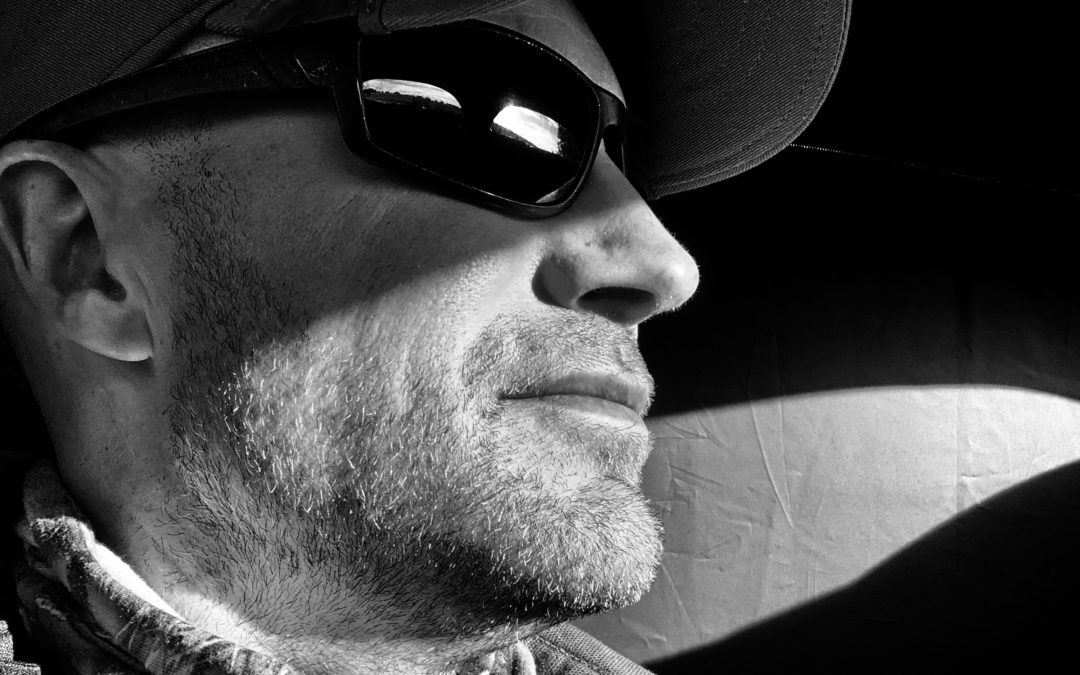
by Lance Cashion | Apr 8, 2020 | Encouragement, Jesus Christ, Personal Growth, Serving, Spiritual Life, Wisdom |
I have been on staff as the Local Outreach Pastor at Christ Chapel Bible Church headquartered in Fort Worth, Texas for 6 years. We have campuses in Willow Park and Burleson as well. My main role is deploying our people into the community serving as the ‘hands and feet’ of Jesus Christ.
For as long as I remember, Christ Chapel has had a motto that we’re ‘a church without walls’.
That has been our aim. A mature Christian is a servant in his or her community. Whether its volunteering at a shelter for those experiencing homelessness or ministering to the widow down the street, my mission is to get our people to live missional lives of service. Biblical faith in Jesus Christ will bear the fruit of serving others. We are to be ‘doers of the Word, not hearers only…”
Like any other church, you have those crusaders who need no direction or encouragement, they just go and do. Additionally, you also have those folks who need to be encouraged, coached and directed to take a first step into service. Finally, like most churches, there is a small population of fence-sitters who attend church services faithfully on Sundays but absolutely refuse to serve anyone other than themselves. They are consumers, not contributors – which is antithetical to Biblical faith in action.
That said, there are those faithful who are physically unable to serve due to age or disability or illness. But, they will pray, support and do what they can to undergird gospel ministry. I’d add that those who serve as intercessory ‘prayer warriors’ form the backbone of the church.
We have been praying that our church would become the ‘church without walls’ we’ve claim to be for years. Today, I’m glad to announce that we are now a church without walls! Thanks to the COVID19 pandemic, local congregations across the globe cannot gather within the walls of a building we call ‘a church’. Referring to the church as building is a misnomer, because the church is not a place, it is a people. The Church is the redeemed universal body of believers in Jesus Christ who is Lord over all. The Coronavirus pandemic has stripped down the walls of the church gathering place and forced Christians outside. We are now a ‘church without walls.’
There is no going back.
The church throughout the ages has run into the flames of adversity, injustice, pestilence, war and famine to provide care, compassion and assistance to those in desperate need. If you think church is a Sunday affair of dressing up, going to a building, singing some songs, seeing friends and listening to a sermon, I encourage you to read the book of Acts. Biblical faith has always been active, outward-bound and other-focused by serving others. We are called to be the church without walls. That was God’s original intent when He designed how His people would go about His business across the globe throughout history. His command has always been ‘Go’.
The true Church is a church without walls. It never had walls. We are being reminded of that in this historical moment.
Now, go and do in Jesus’ name.
“But be doers of the word, and not hearers only, deceiving yourselves.” – James 1:22
Read previous post: FaceTime and WhatsApp: Help your neighbors connect during quarantine
If you like what you read here, please subscribe – sign-up here. Every time I post something new, you will receive an email

by Lance Cashion | Nov 17, 2017 | God, Jesus Christ, Leadership, Philosophy of Ministry, Serving, Wisdom
Today, I am going to share the philosophy of ministry I have the privilege of leading.
Preface: This post begins a series intended to help other church leaders understand the way we do ministry within Local Outreach at Christ Chapel Bible Church. This is not the ‘only way’ but ‘one way’ to approach ministry. I’m not stating that there is one right way to do ministry. Context is important. You will adapt ministry to serve in your context. We’ll get into some of the theology and why I believe every church should have a robust community outreach in later posts. I have tried many things an failed and I’ve made plenty of mistakes. My hope is that you will see this as a starting point on a journey.
There must be a philosophy of ministry undergirding mission; in this case, community outreach.
A bit of background:
I’ve been on staff at Christ Chapel Bible Church in Fort Worth, Texas for three and a half years. Perviously, I was doing my own thing in the wealth management and insurance industries until I received a call from the executive pastor at my church. He was convinced that I was the next Local Outreach Pastor. After three months of wrestling, one early morning God made it crystal clear, he had called into full-time ministry. That said, I continue to have a deep appreciation for business done well and the entrepreneurial spirit. I love visiting with business owners and entrepreneurs. I believe that ministry could use more business acumen and business could use more ministry acumen.
The Local Outreach Ministry (I also refer to it as ‘Local Missions’) at Christ Chapel existed for decades before I took the helm in 2014. The ministry has grown and evolved as the church has grown from a couple dozen folks to nearly 7,000 attendees, two campuses and over 1500 folks streaming every Sunday. A solid foundation had been laid by others prior to my arrival. I am so thankful for their work. It is a privilege to build upon it. I pray that I pass the baton well.
We refer to Christ Chapel as a ‘church without walls’. This means we believe we must move out of the confines of church buildings and into the surrounding community to serve and share the love of Jesus Christ.
We believe that church staff exists ‘to equip the the saints for the work of the ministry…’ (Ephesian 4:12a). My role as Local Outreach Pastor is NOT to do everything myself. My role is to equip our people and give away the ministry. Then, I get behind lay-leaders (volunteers) and support them in their work.
One person is limited to he or she can accomplish in a day alone.
But, many ministry leaders work as if everything depends on them. This form of ministry is exhausting and prideful. Little wonder pastors suffer from burnout and leave ministry. It’s unbiblical for one man or woman to do ALL the work. At the moment Jesus called his first disciple to ‘follow me’, he began giving away the ministry. Jesus provided the New Testament model and philosophy of ministry. We are called to give it away.
I was taught at an early age to surround myself with people who are smarter and have more talent than I have. You don’t have to know everything to lead. It’s a good thing if someone else has more passion for the poor or serving children or single moms than you do. It’s a good thing if someone knows more about homelessness or prison ministry than you do! God has placed those desires in their hearts and they have gifts you don’t have.
It is the pastor’s responsibility to celebrate that passion and talent and then provide opportunities for those people to express it.
In Genesis 2:19, God delegated responsibility and limited authority to man in naming things in the created world. God has been about giving it away since the beginning.
As pastors and leaders, we are not God. So, we can’t do everything ourselves. God has always modeled giving away (or delegating) responsibility and authority. So should we.
Read previous post: Unbridled Skepticism: Rebelling against EVERYTHING . If you wish to subscribe to this blog, please sign-up here. Every time I post something new, you will receive an email.
